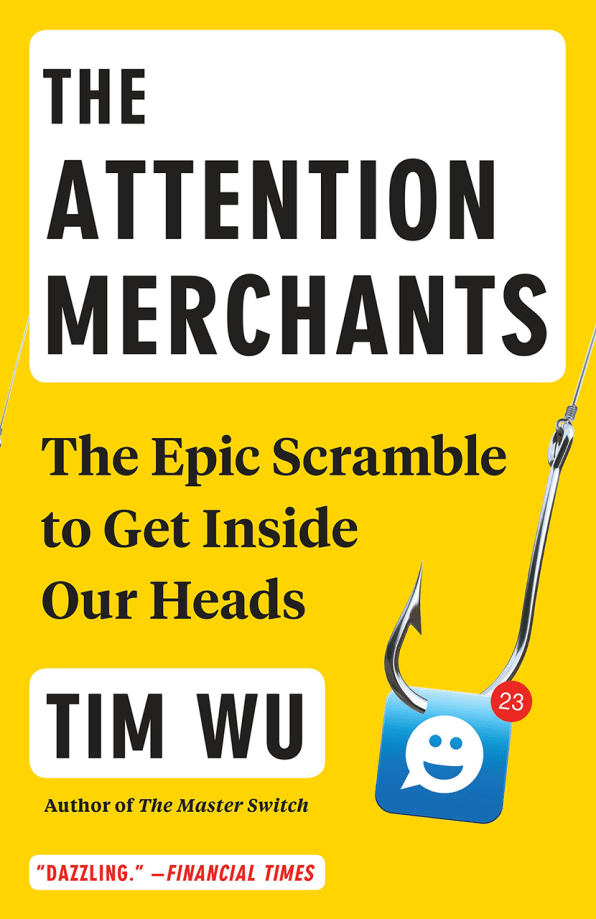Everyone should be reading The Attention Merchants this summer
We live in a time when too many things claw for our attention: pinging notifications on our phones, the endless luring scroll of social media, the proliferation of content designed specifically to grab your eyes.
There’s a reason why the internet is such an attention suck. What you pay attention to deeply informs how you think and feel about the world. The problem is, there’s a lot of people who want to influence you so you’ll buy their products. As a result, an entire industry has sprung up around the practice of gathering attention and then selling it to the highest bidder.
It is this exchange–the commodification of human attention–that is the subject of the 2016 book The Attention Merchants: The Epic Scramble to Get Inside Our Heads by Columbia Law professor Tim Wu.
It’s also the book our readers and editors have selected to be Fast Company‘s pick for our summer book club. And while it’s certainly not a light beach read, The Attention Merchants deeply changed the way I think about my life, my work, and my relationship with technology. I hope you’ll join us as we read and reflect on it through the rest of the summer.
Why this book now?
The Attention Merchants is not a how-to guide that will give you tips and tricks to control the vast reach that websites like Facebook and Google have in your life. Instead, Wu tries to fully explicate the pros and cons of the attention economy, with complete historical context.
The book lays out the evolution of the bargain that we’ve all entered into to give our attention (and thus our data) in exchange for news, entertainment, and services. From the first newspapers fully supported by advertising, all the way to celebrities like Kim Kardashian and Donald Trump and their continued ability to garner people’s attention, Wu looks at the times this bargain is a good deal, and the times it’s not.

Wu also dissects the moments when consumers have pushed back in what he calls “an attentional revolt.” In the 1960s, for instance, there was a great countercultural uprising against the influence of advertising. As TV became a fixture in every home, cultural critic Timothy Leary urged people to “turn on, tune in, drop out.” But the attention merchants figured out how to maintain their reach: by co-opting the counterculture’s messages as its own to sell products like Philip Morris’s Virginia Slims cigarettes for women and Pepsi-Cola.
Today, we have our own kind of uprising, as many people are reckoning with the fact that internet companies that rely on advertising don’t really have their users’ best interests in mind.
Besides providing the context for the attention economy, The Attention Merchants also helped me understand my own role in this system, as a writer for a website that sells ads and hopes to get as many people’s attention as possible, but also as a user of social media. Truly, all of us are now cogs in this economy. The pieces of our lives that we post online are the current attention economy’s currency.
Ultimately, the book made me think deeply about how I spend my attention. If the attention merchants are figuring out ways to make me look and click and buy, how can I resist their urges? When do I want to resist, and when are they providing me with something valuable? How can I be more deliberate with my attention and “spend” it frugally and smartly, just like I try to spend money? How can I protect myself against the attention merchants’ schemes to influence me without shutting myself off from the digital world?
Join Fast Company writers and editors this summer as we read about the tumultuous history of The Attention Merchants, taking some time away from a screen to indulge in a book that–unlike many things online–truly deserves your attention. And stay tuned to Fast Company on Twitter and Facebook for opportunities throughout the summer to win a copy of the book. Then join us in September for a book club discussion.
(30)



